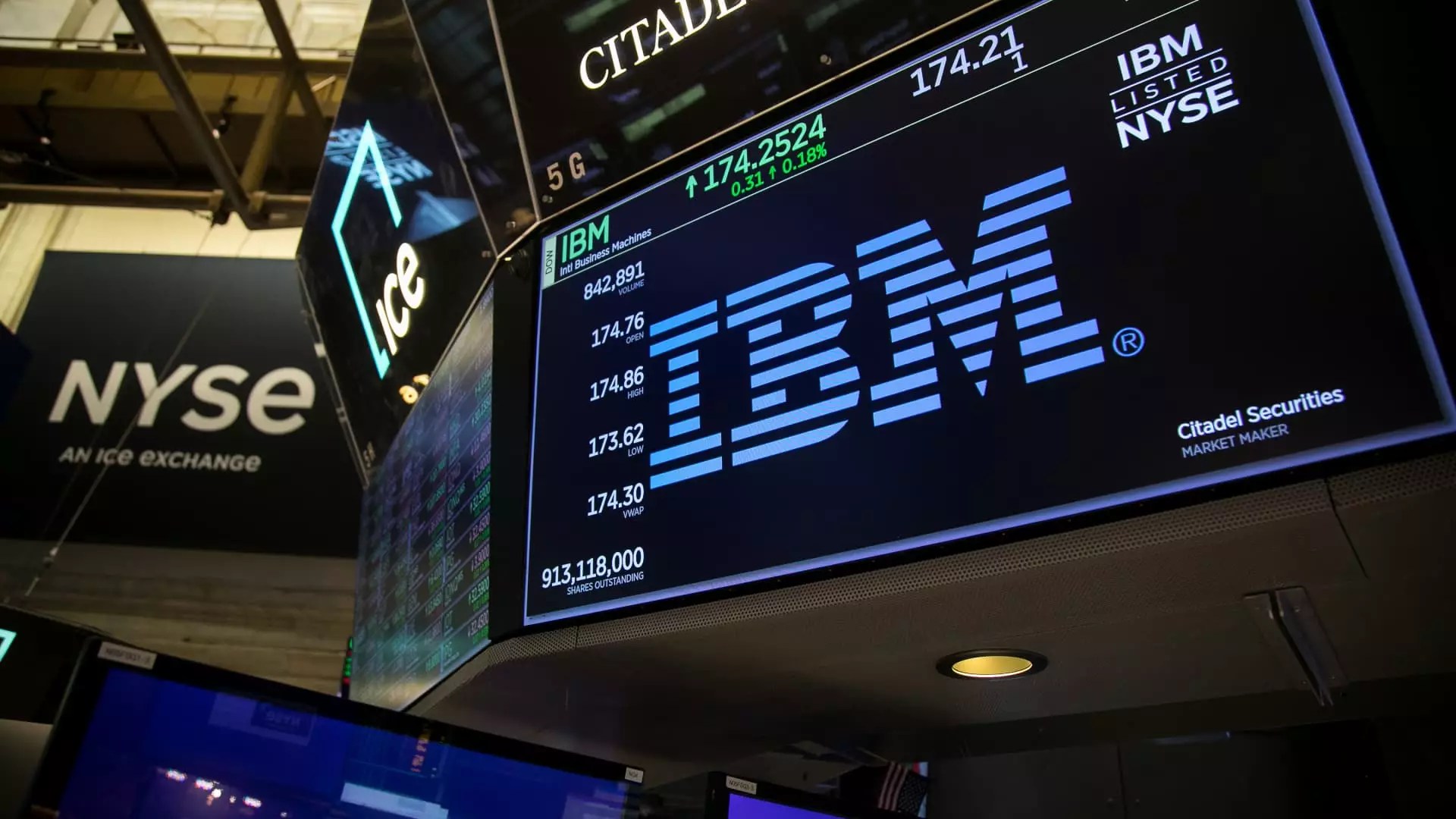The stock market has always been a volatile space, especially for technology companies that constantly innovate and redefine their sectors. Recently, three companies have stood out: IBM, Uber, and Mattel. Each has a unique narrative that influences their stock performance. Scott Nations, president and chief investment officer of Nations Indexes, recently shared his thoughts on these stocks during his appearance on CNBC’s “Power Lunch.” This article will explore his insights while providing a fresh perspective on the challenges and opportunities these companies face.
IBM has recently emerged as a blue-chip star, boasting a remarkable 27% increase in its stock value over the past three months. However, despite this strong performance, Scott Nations urges caution regarding IBM’s future prospects in the artificial intelligence (AI) sector. He acknowledges the company’s robust fourth-quarter results, which exceeded Wall Street’s expectations, and noted a 10% year-over-year increase in software revenue largely driven by demand for AI technologies and the success of its Red Hat Linux ecosystem.
Yet, Nations emphasizes a critical point: IBM’s approach to AI differs from that of its key competitors. He refers to IBM’s methodology as a “DeepSeek approach,” suggesting a focus on foundational and targeted development rather than mass-market applications. Subsequently, he advocates a “wait-and-see” strategy, indicating that while the company currently enjoys accolades, the effectiveness of its AI strategies remains under scrutiny. The recent global market fluctuations ignited by China’s DeepSeek underscore the rapidly changing dynamics within the AI frontier—where advancements can be achieved at a fraction of the cost traditionally expected.
Furthermore, IBM’s CEO, Arvind Krishna, has announced significant AI bookings amounting to $5 billion, indicating strong future demand. Nevertheless, as Nations notes, tangible results will be paramount to satisfy investor confidence moving forward. The juxtaposition of IBM’s advanced AI commitments with the rapid innovations from startups brings an air of uncertainty that investors must navigate carefully.
Moving from traditional tech to the fast-paced ride-hailing sector, Uber’s stock trajectory has drawn attention following a sharp decline after a disappointing earnings report. Nations sees opportunity amid the volatility, particularly because of Uber’s strategic buyback initiatives. This commitment to repurchasing shares signals confidence in the company’s longer-term potential, despite the immediate challenges.
The improvement in Uber’s operational strategy is notable, particularly as it gears up to launch autonomous ride-hailing services in partnership with Alphabet’s Waymo. Nations highlights that the market for autonomous vehicles presents an enormous potential, with estimates reaching trillions in value. However, CEO Dara Khosrowshahi has tempered expectations regarding the time frame for realizing these benefits, emphasizing that substantial progress will require years of development.
Uber’s aggressive investments into technology and innovative services reveal a commitment to remain at the forefront of market changes. Yet, Nations urges investors to maintain realistic expectations, recognizing that while the promise is significant, immediate returns may not manifest.
Unlike the high-stakes realms of AI and ride-hailing, Mattel operates within a more grounded sector, yet it has recently experienced a striking resurgence. Following an optimistic earnings report, Mattel’s stock surged by 14% to reach a new 52-week high. The toy manufacturer managed to outperform analyst expectations significantly, posting a profit that outshone forecasts.
Nations has shown interest in Mattel, suggesting that the stock could present a buying opportunity if it dips below $20 per share. The market’s positivity is partially fueled by the company’s enhanced stock buyback plan, a strategic move that creates a favorable perception among investors. The implication here is straightforward: buybacks can elevate share prices and indicate management’s belief in the company’s future performance.
As the toy industry continues to grapple with shifting consumer preferences and competition, Mattel’s ability to innovate and capture attention reflects its resilience. Gradually, it has established itself as a staple in the market, and its ongoing focus on creative reinvention could serve to bolster investor confidence.
The narratives surrounding IBM, Uber, and Mattel showcase the diverse horizons within the technology and consumer sectors. Each company is at a distinct crossroads—facing unique challenges, re-evaluating strategies, and seeking opportunities in an ever-evolving marketplace. Investor sentiment remains pivotal, and as Scott Nations points out, keeping an eye on developments will be crucial. The road ahead may be fraught with uncertainties, but strategically leveraging current strengths will determine their ability to thrive in a competitive landscape.


Leave a Reply